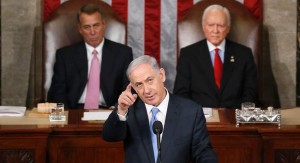Israeli Prime Minister Benjamin Netanyahu — I dare say — is talking out of both sides of his mouth.
He told a delegation of congressional Democrats visiting him in Israel this week that it’s “not my job” to tell them how to vote on the Iran nuclear deal hammered out by Secretary of State John Kerry and representatives of five other world powers.
However, that doesn’t quite square with what he did earlier this year when, at the invitation of Republican U.S. House Speaker John Boehner, Netanyahu stood before a joint congressional session and — yep — told them in effect how they should vote on a deal designed to stop Iran from obtaining a nuclear weapon.
Lawmakers visiting Netanyahu said the prime minister was respectful and frank.
He doesn’t like the deal. In many ways, I understand Netanyahu’s reluctance to deal with the Iranians. Their regime has declared its intention to wipe Israel off the face of the planet. The Islamic Republic of Iran isn’t to be trusted at any level, according to Netanyahu.
But President Obama, Kerry and all the participants say the same thing about the deal: It blocks “every pathway” Iran has to obtain a nuclear weapon.
Congress is going to take up the issue next month. A resolution calling for defeat of the deal is likely to pass. It’s also likely to lack the votes to overturn an expected veto from the president.
Never mind, though, that the Israeli prime minister isn’t telling members of Congress how to vote.
Wink, wink.
Actually, yes he is.
